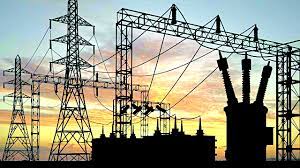It is a tragic reality that for the past few years, Nigeria has been plagued by the incessant collapse of its national grid. The nation has never been capable of generating, transmitting, and distributing sufficient electricity to its vast population. Daily life in Nigeria is synonymous with power outages, leaving citizens in a state of perpetual darkness. The country’s electricity infrastructure is not only old but woefully inadequate to meet the needs of its growing population. This dire situation calls for immediate action from relevant authorities.
For years, Nigeria has been grappling with its power crisis. The nation’s outdated and insufficient infrastructure has failed to keep up with the times and the growing population, perpetuating the ongoing power outages. This has led to frustrated citizens and even more frustrated businesses. With the current state of the economy, power outages only make matters worse. The sector’s neglect and waning attention have only contributed to land Nigeria in an unenviable situation.
The impact of Nigeria’s power crisis has been felt in every sector. It has taken a toll on schools, which are unable to provide the quality of education necessary for the future generation. The constant blackouts also put lives in danger in hospitals, as equipments fail, and medical procedures come to an abrupt halt. Businesses and industries are hit worst, struggling to remain productive amidst the darkness. Countless jobs are lost each year because of this lack of reliable infrastructure.
It is high time the authorities take these vital issues seriously and collaborate to come up with solutions for the ailing power infrastructure. There needs to be a concerted effort towards investing in modern and efficient technologies, rehabilitating existing power plants, and improving power transmission and distribution systems. The current situation only highlights the pressing need for diversification in the sector, with greater emphasis placed on alternative energy sources and renewable energy.
The government must adopt pragmatic policies that attract investment in the power sector and provide incentives for clean energy solutions. It is a long-term solution that should not be underestimated and goes beyond serving the immediate needs of citizens, but ensures the country’s future development.
Nigeria has the potential to generate power from a wide range of sources, including solar and wind power. Investing in these sources of energy promises considerable benefits for the nation in the long term. Efforts to tap into these sources must be expedited, and plans established to incorporate them into the existing power infrastructure.
It is imperative that Nigeria’s power crisis be resolved today rather than tomorrow. The authorities must act with urgency and focus on putting in place long-term solutions that address Nigeria’s power needs. Efficient technologies and infrastructures should be prioritized to usher Nigeria into an electrified future. Only then will the country be able to realize its full potential and offer a brighter future for its people.
Mukhtar Jarmajo,
Wuse Zone 2, Abuja.




